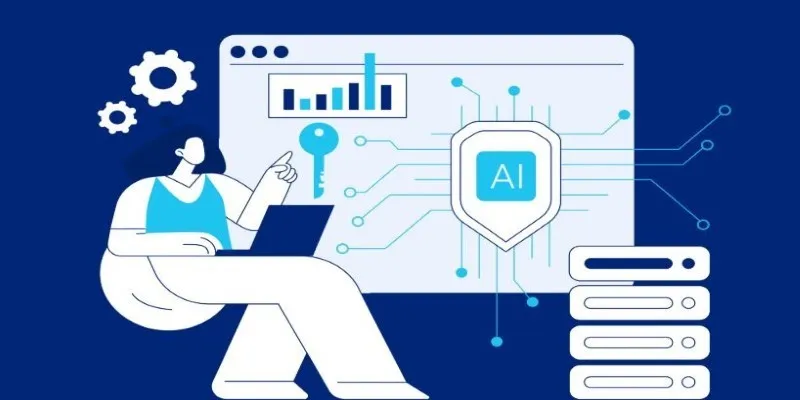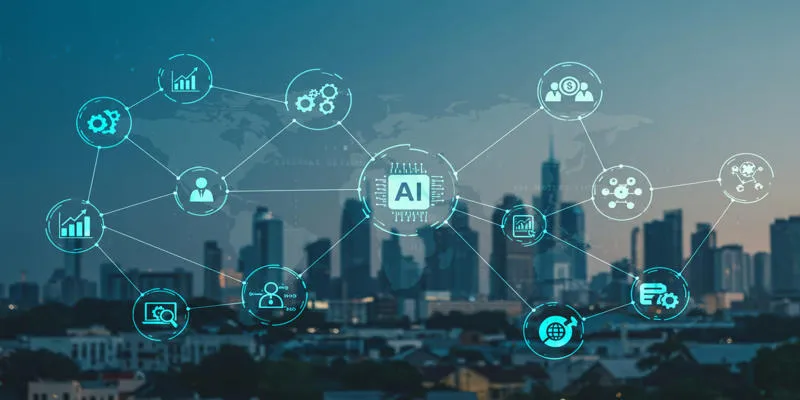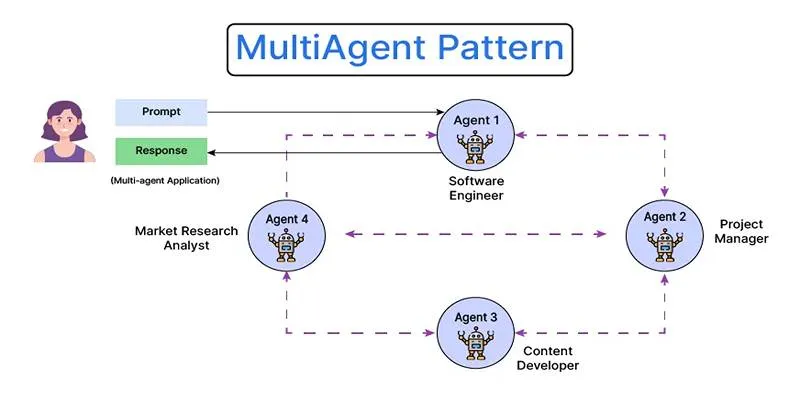Technology is embedded in every aspect of our lives, from waking us up in the morning to suggesting purchases and completing our emails. Behind this convenience lies artificial intelligence (AI), which relies heavily on personal data. As AI becomes more advanced, concerns about privacy grow. People are beginning to question who has access to their personal information and what happens to the data they share online.
With the advent of AI, people no longer merely interact with technology; they’ve become the product. This transformation comes with critical data security concerns that need to be remedied for privacy protection in a world that is becoming more integrated every day.
How AI Collects and Uses Data?
AI systems run on data like cars run on gasoline. Each online query, social media update, or voice command is added to a widening database that trains machines to learn. Take, for instance, intelligent assistants such as Siri or Google Assistant. They are designed to recall your likes, habits, and routines. The more they’re informed, the more they assist you — or so the theory goes.
However, this information hunger also raises concerns about AI and privacy. Firms tend to collect user data using techniques such as tracking cookies, app permissions, and monitoring online activities. This gathering is not restricted to simple data such as age or location. It extends to more personal details—voice recordings, facial recognition patterns, health information, and even spending habits.
Most users, however, are unaware of how much of their private life they are pumping into these systems. They accept privacy policies without reading them. Such blind faith results in the ideal conditions for data security threats. Once your data is in an AI system, controlling and deleting it is immensely challenging.
Data Security Risks in the Age of AI
The phrase “data security risks” isn’t just a buzzword. It reflects the real dangers of trusting AI-powered systems. The problem isn’t only about companies collecting data—it’s about what happens if that data falls into the wrong hands.

One major risk is data breaches. AI-driven systems store massive amounts of sensitive information in centralized databases, which become prime targets for hackers. If security measures fail, millions of people’s details can be exposed overnight. We’ve already seen this happen in high-profile cases where credit card details, medical records, and even biometric data were leaked. To learn more about real-world implications of data breaches, you can visit this [CNBC article on the cost of data breaches](https:/www.cnbc.com/2021/09/15/how-cyberattacks-and-data-breaches- cost-companies-millions.html).
Another risk comes from the misuse of data within organizations themselves. Not all threats are external. Employees with access to sensitive AI data could abuse their position. There have been situations where personal user data was accessed without permission, raising further AI and privacy concerns.
Additionally, AI systems sometimes make decisions based on flawed or biased data. If the information collected about a user is incorrect or incomplete, the AI might deliver inaccurate results. This can affect loan approvals, job applications, or medical recommendations. Beyond personal inconvenience, these mistakes have serious consequences for security and trust.
The Battle for Privacy in a Connected World
Despite these risks, AI technology is not slowing down. In fact, it’s expanding rapidly into sectors like healthcare, finance, education, and smart homes. This expansion makes protecting personal data even more complicated. People now live in a world where cameras recognize faces at airports, fitness trackers monitor health conditions, and smart refrigerators know your grocery habits. The line between convenience and intrusion is getting blurry.
Governments and privacy advocates are pushing for stronger regulations to tackle AI and privacy concerns. New privacy laws like GDPR (General Data Protection Regulation) in Europe or CCPA (California Consumer Privacy Act) in the U.S. give users more control over their data. These laws require companies to disclose what data they collect and allow users to delete personal information upon request.
However, enforcing privacy laws on a global scale is difficult. Many AI-driven platforms operate across borders, making legal accountability challenging. Moreover, technology often evolves faster than regulation. What seems secure today might become vulnerable tomorrow.
Users must also take responsibility for their data security. Simple steps like using strong passwords, enabling two-factor authentication, and carefully reviewing app permissions can help reduce data security risks. However, individual efforts can only go so far when dealing with powerful AI systems backed by large corporations.
The Future of AI and Privacy Concerns
As AI systems become more integrated into daily life, privacy concerns will only intensify. From self-driving cars tracking location data to smart cities monitoring citizens, the need for robust privacy protection grows stronger. A promising solution lies in privacy-focused AI design, such as differential privacy and federated learning. These techniques allow AI to learn from user data without exposing sensitive information. Federated learning, for example, processes data locally on devices instead of sending it to a central server, reducing external data sharing.

Transparency is crucial in this evolving landscape. Companies must be clear about what data they collect and how they use it. Privacy policies should be simple and understandable, avoiding complicated legal jargon, as user trust hinges on this openness.
The balance between technological advancement and ethical responsibility is key. AI can enhance lives, but it shouldn’t come at the expense of personal privacy. As awareness of data security risks grows, users will demand smarter privacy solutions. Technology companies that fail to prioritize privacy may risk losing customer trust, which is challenging to rebuild in a competitive market. Ensuring privacy and innovation go hand in hand will be essential for the future of AI.
Conclusion
While AI offers tremendous benefits, it also brings significant privacy and security risks. The collection and misuse of personal data can have far- reaching consequences if not properly managed. As AI continues to evolve, both technology developers and users must prioritize data security. Governments and companies must enforce stricter regulations, and users should remain vigilant about their digital footprints. Striking a balance between innovation and privacy will be key to ensuring AI’s positive impact without compromising personal security.
 zfn9
zfn9























